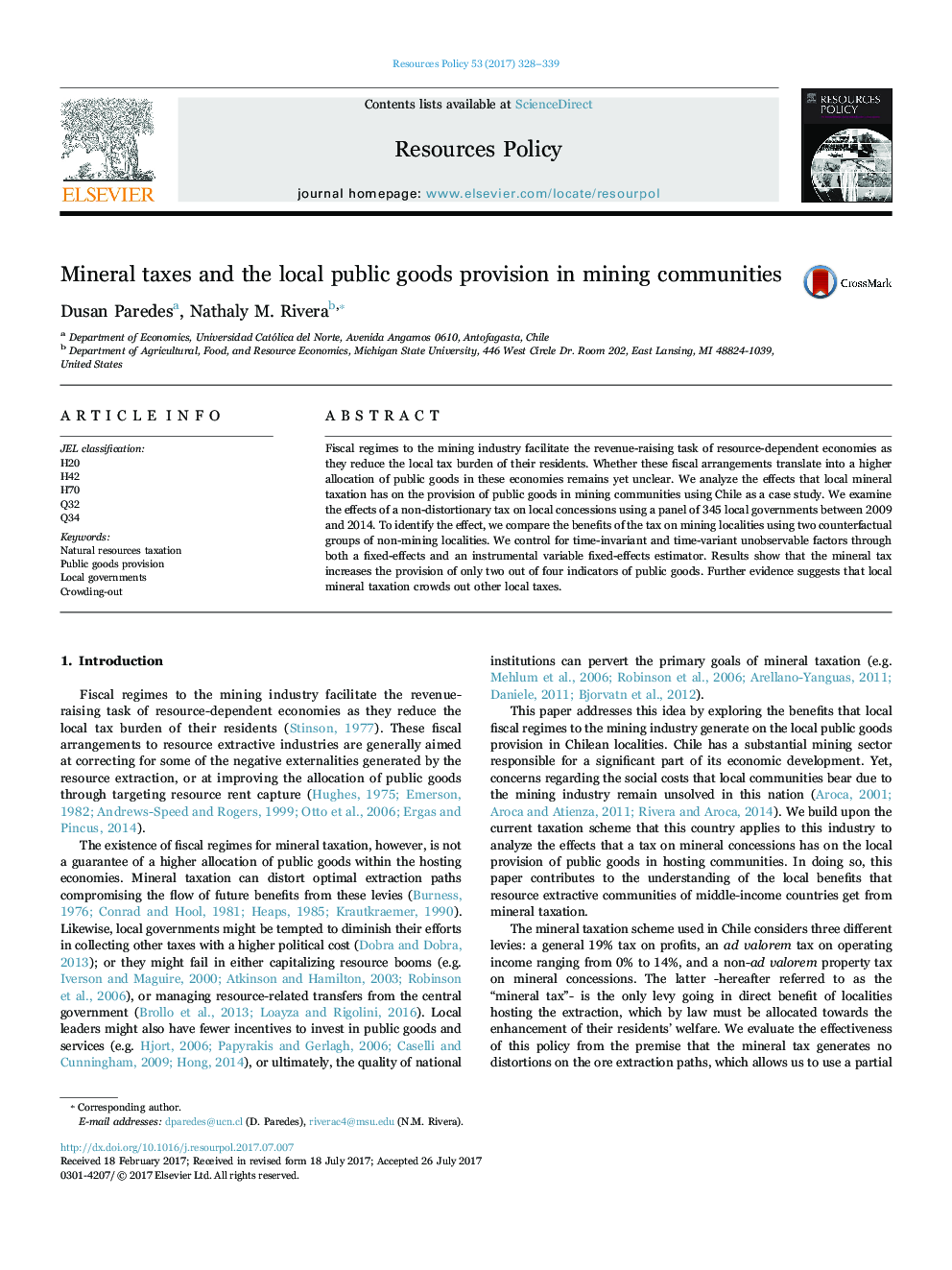| Article ID | Journal | Published Year | Pages | File Type |
|---|---|---|---|---|
| 5104172 | Resources Policy | 2017 | 12 Pages |
Abstract
Fiscal regimes to the mining industry facilitate the revenue-raising task of resource-dependent economies as they reduce the local tax burden of their residents. Whether these fiscal arrangements translate into a higher allocation of public goods in these economies remains yet unclear. We analyze the effects that local mineral taxation has on the provision of public goods in mining communities using Chile as a case study. We examine the effects of a non-distortionary tax on local concessions using a panel of 345 local governments between 2009 and 2014. To identify the effect, we compare the benefits of the tax on mining localities using two counterfactual groups of non-mining localities. We control for time-invariant and time-variant unobservable factors through both a fixed-effects and an instrumental variable fixed-effects estimator. Results show that the mineral tax increases the provision of only two out of four indicators of public goods. Further evidence suggests that local mineral taxation crowds out other local taxes.
Related Topics
Physical Sciences and Engineering
Earth and Planetary Sciences
Economic Geology
Authors
Dusan Paredes, Nathaly M. Rivera,
